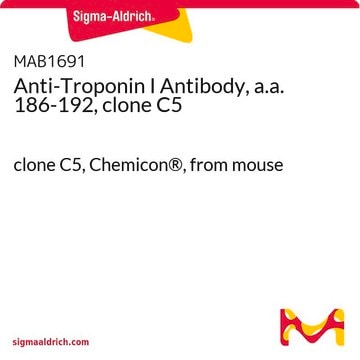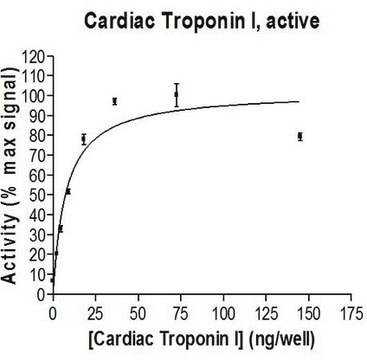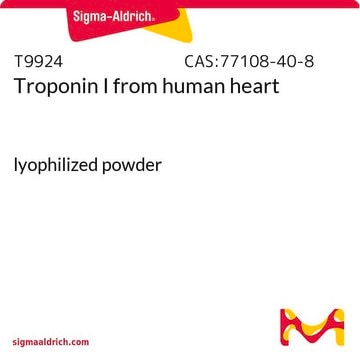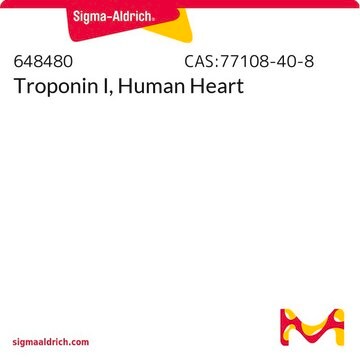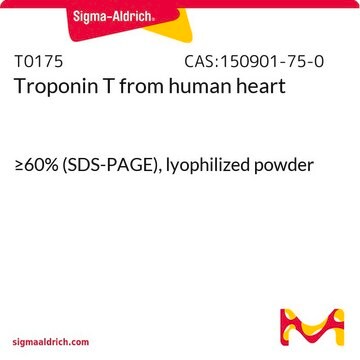MAB3152
Anti-Cardiac Troponin I Antibody, a.a. 87-91, clone 8E10
clone 8E10, Chemicon®, from mouse
Sinónimos:
cTn1, Cardiac Troponin I
About This Item
Productos recomendados
biological source
mouse
Quality Level
antibody form
purified antibody
clone
8E10, monoclonal
species reactivity
canine, rabbit, feline, human, bovine, pig, goat
should not react with
rat, mouse, fish
manufacturer/tradename
Chemicon®
technique(s)
ELISA: suitable
western blot: suitable
isotype
IgG1
NCBI accession no.
UniProt accession no.
shipped in
wet ice
target post-translational modification
unmodified
Specificity
Immunogen
Application
Metabolism
Muscle Physiology
EIA: MAB3152 has been used successfully in ELISA and immunoaffinity purification. Its affinity constant is 8x10(10). It can be used with MAB3150 in sandwhich ELISA as the coating antibody.
Optimal working dilutions must be determined by end user.
Physical form
Storage and Stability
Other Notes
Legal Information
Disclaimer
Optional
Storage Class
10 - Combustible liquids
wgk_germany
WGK 2
flash_point_f
Not applicable
flash_point_c
Not applicable
Certificados de análisis (COA)
Busque Certificados de análisis (COA) introduciendo el número de lote del producto. Los números de lote se encuentran en la etiqueta del producto después de las palabras «Lot» o «Batch»
¿Ya tiene este producto?
Encuentre la documentación para los productos que ha comprado recientemente en la Biblioteca de documentos.
Los clientes también vieron
Nuestro equipo de científicos tiene experiencia en todas las áreas de investigación: Ciencias de la vida, Ciencia de los materiales, Síntesis química, Cromatografía, Analítica y muchas otras.
Póngase en contacto con el Servicio técnico
